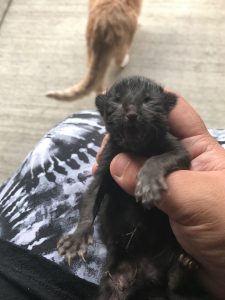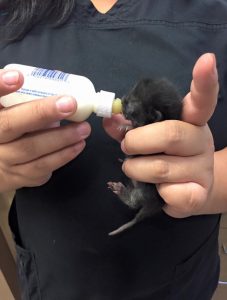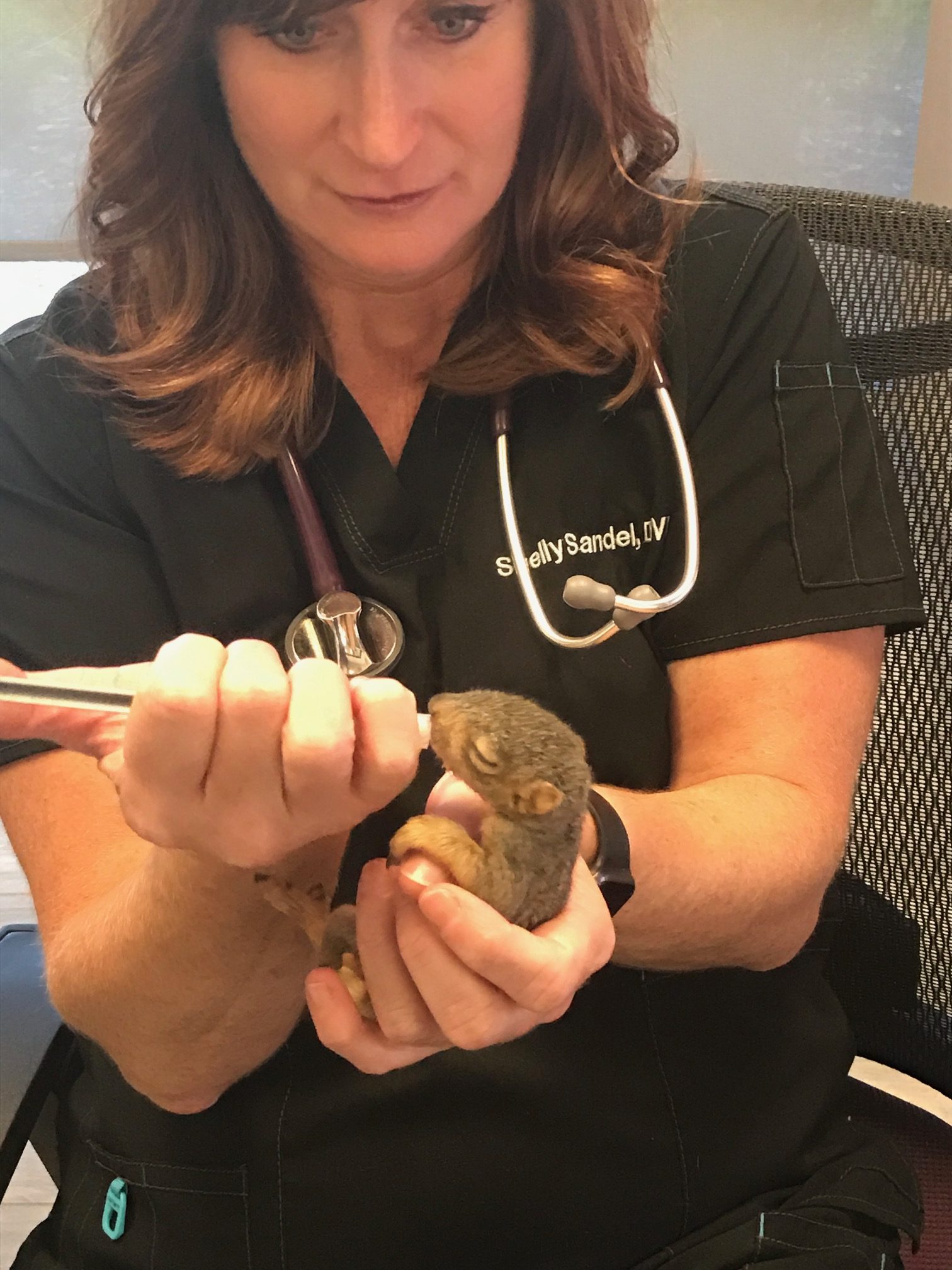 In Stapleton, there is more space dedicated to parks, greens, courtyards, greenways, wildlife refuges, mews, and parkways than there is to residential homes. And, an abundance of green space brings with it an abundance of wildlife, especially during the spring “baby” season.
In Stapleton, there is more space dedicated to parks, greens, courtyards, greenways, wildlife refuges, mews, and parkways than there is to residential homes. And, an abundance of green space brings with it an abundance of wildlife, especially during the spring “baby” season.
So, what do you do if you’re taking a stroll down the Westerly Creek trail and stumble upon a baby animal? Here are a few tips.
PROBLEM: You’ve found a baby bird on the ground.
SOLUTION: Begin by trying to determine the baby’s age. Baby birds go through three stages:
• Hatchling — About 0-3 days old, a hatchling’s eyes will still be closed, and it might have down on its body.
• Nestling — About 3-13 days old, a nestling will have open eyes, but its wing feathers might still be in their protective sheaths, making them look more like tubes than wings.
• Fledgling — A fledgling is usually at least 14 days old and is fully feathered. A fledgling will be able to walk, hop, or flutter, but it might still be working on its flying skills.
Hatchlings and nestlings are not yet ready to leave the nest, so if you find one on the ground and can see a nest nearby, you should try to pick it up and return it to the nest. It is a myth that mother birds will abandon their young if a human has touched them. Birds do not have a good sense of smell, and they cannot smell humans on their babies. If you can’t find a nearby nest, it’s probably best to leave the hatchling or nestling where you found it.
Fledglings have left the nest and live on the ground but are still fed by their mothers. Most baby birds found on the ground are actually fledglings, and they do not need our help. Leave the fledgling alone and keep dogs and people away.
If the bird seems to be domestic or owned and is injured, try to pick it up, put it in an enclosed container, like a shoe box, and take it to a veterinarian. If you think the bird is a pet and uninjured you can contact the Gabriel Foundation.
PROBLEM: You’ve found a rabbit’s nest or a rabbit in your window well.
SOLUTION: If you stumble upon a rabbit’s nest with baby bunnies that has been disturbed, try to cover the nest and the babies with the grass that originally covered them. Mother rabbits feed their babies twice per day—at dawn and dusk—so don’t worry if you don’t see the mom around. She’ll be back when it’s time for her bunnies to eat.
Check for rabbit nests before you mow your yard to prevent harming baby rabbits.
Baby rabbits leave the nest at about 3 weeks old. At that age, their eyes are open, they have all of their fur, their ears are erect, they can hop, and they’re about the size of a chipmunk. Unless injured or stuck in a window well, these rabbits do not need your help.
If you find an adult rabbit in your window well, scoop it out carefully and let it go. If it appears to be injured, take it to a veterinarian or contact the Greenwood Wildlife Rehabilitation Center.
 PROBLEM: You’ve found a baby squirrel.
PROBLEM: You’ve found a baby squirrel.
SOLUTION: If the baby does not appear to be injured, give the mom a chance to claim it, but only until night falls. When the sun begins to set, put gloves on, pick up the baby squirrel, put it in a secure container, and bring it inside. Do not feed the baby squirrel because there is a high risk of aspiration (the food going down the windpipe and into the lungs rather than down the esophagus and into the stomach). Bring the baby squirrel to a veterinarian or contact the Greenwood Wildlife Rehabilitation Center.
PROBLEM: You’ve found a litter of feral kittens.
SOLUTION: Feral cats, while “wild,” are different than other wild species, and we don’t want to add to the feral cat population. If the mom is with her kittens and she is tame and approachable, you should take her and her kittens to a shelter for spay/neuter and adoption. If the mom is not friendly and won’t let you approach, contact Denver Metro Cat at 844-336-2287 for help. They can provide traps so the mom and her kittens can be brought to a shelter.
 If the mom is not around the kittens, she will typically return within a few hours, so leave the kittens alone until she returns (if they are in a safe location). If the mom doesn’t return for 2 days, she has likely abandoned the kittens, and they should be taken to a shelter.
If the mom is not around the kittens, she will typically return within a few hours, so leave the kittens alone until she returns (if they are in a safe location). If the mom doesn’t return for 2 days, she has likely abandoned the kittens, and they should be taken to a shelter.
——-
Greenwood Wildlife Rehabilitation Center helps many different wildlife species, so contact them if you come across a different animal that seems to need help.





1 Comment
Anne Hebert
Fantastic information! Very helpful.
Comments are closed.